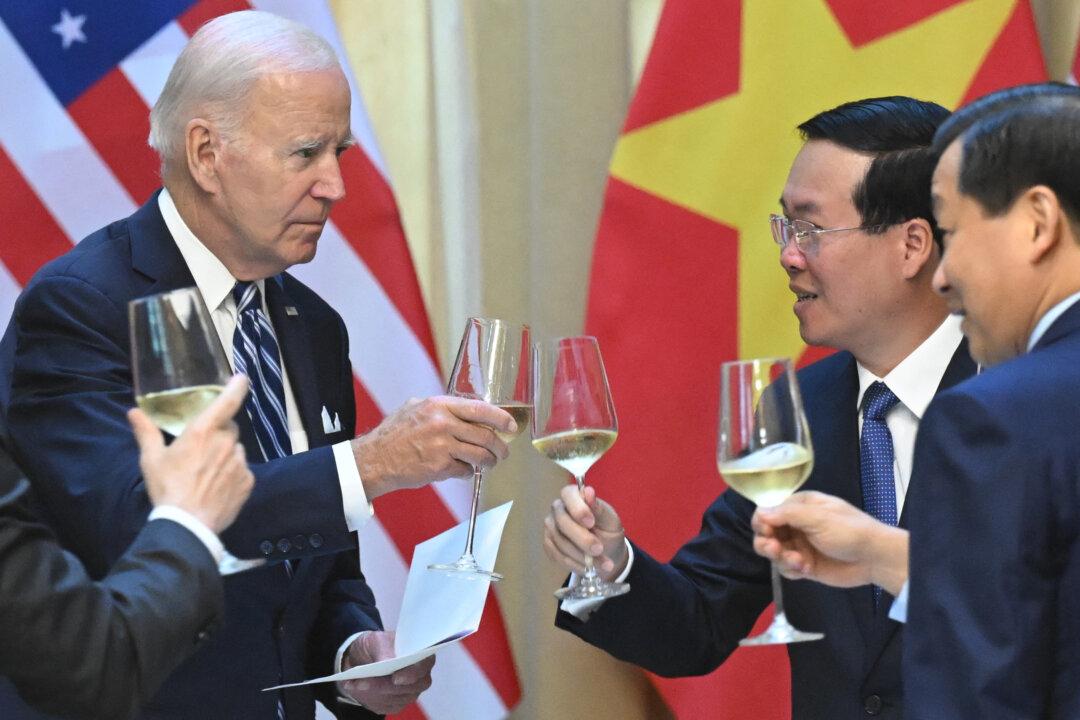U.S. President Joe Biden said on Sunday that China’s economic woes may hinder the country from invading self-ruling Taiwan, as the situation could mean that Beijing no longer possesses the capacity it once had.
President Biden arrived in Vietnam on Sept. 10 after wrapping up his meetings at the G20 summit in India. During a press conference in Hanoi, President Biden said he hopes to meet with Chinese leader Xi Jinping “soon.”





